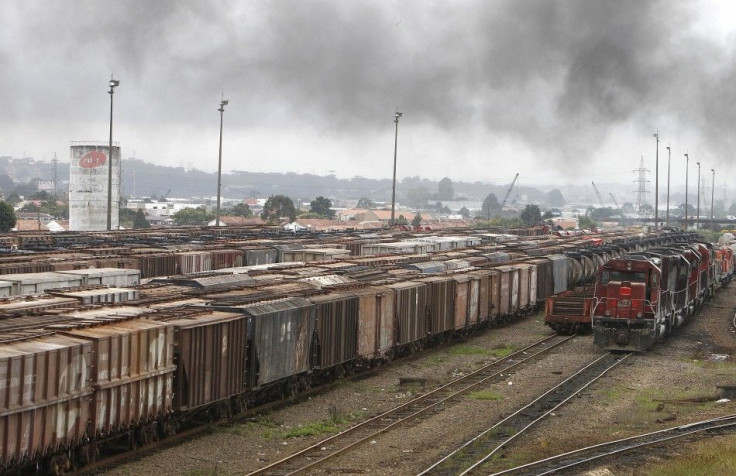Costly Holiday Season National Railroad Strike Averted, For Now

The nation's major freight railroads averted the possibility of an imminent strike, which could hit the retail industry hard during the holiday season, by reaching tentative agreements with two labor unions and agreeing to extend talks with a third late Thursday.
The development comes just hours after Republican House leaders said they would move to vote Friday an emergency bill to block a strike that could happen as soon as Dec. 6.
Including the Brotherhood of Locomotive Engineers and Trainmen and the American Train Dispatchers Association, which represent about 26,500 employees in collective bargaining, the freight railroad industry has now settled with 12 of the 13 unions in this bargaining round, covering more than 80 percent of employees in national handling.
In a tough economy, these agreements offer a terrific deal for rail employees, said A. Kenneth Gradia, chairman of the National Carriers' Conference Committee. They lock in well-above market wage increases of more than 20 percent over six years, far exceeding recent union settlements in other industries.
The last remaining union without a settlement, the Brotherhood of Maintenance of Way Employees that represents 35,000 employees, agreed to extend the cooling off period until Feb. 8, 2012, eliminating the immediate threat of a national rail strike.
A mandatory 30-day cooling-off period went into effect Nov. 5 after a Presidential Emergency Board made recommendations for a settlement intended to avoid a shutdown of the nation's rail system. BMWED rejected those recommendations on November 22, and intend to further negotiate with rail carriers.
The PEB's recommendations have been implemented in all 10 agreements reached, Gradia said.
However, the sticking point for the BMWED is away-from-home expenses for employees required to travel by the railroads. The union said without an increase during this round of bargaining it would mean expenses had not been adjusted for more than 15 years.
BMWED President Fred Simpson said BMWED decided to extend the cooling off period because it was in the best interest of its members.
We took this action because we believe it gives our members the best opportunity to resolve this issue quickly and fairly and avoid an interruption to commerce and avoid a wage loss to our members and other union members who would honor our picket lines.
There's no doubt that a strike or work stoppage could have serious, adverse effects on retailers and consumers this holiday shopping season. It would not only affect the delivery of goods but could also impact thousands of commuters if passenger trains are unable to travel on freight tracks, according to the National Railway Labor Conference.
The possibility of a national railway strike would cost our economy $2 billion per day and would decimate American jobs, said Rep. Bill Shuster (R-PA), chairman of the House Transportation and Infrastructure rail subcommittee.
© Copyright IBTimes 2024. All rights reserved.












